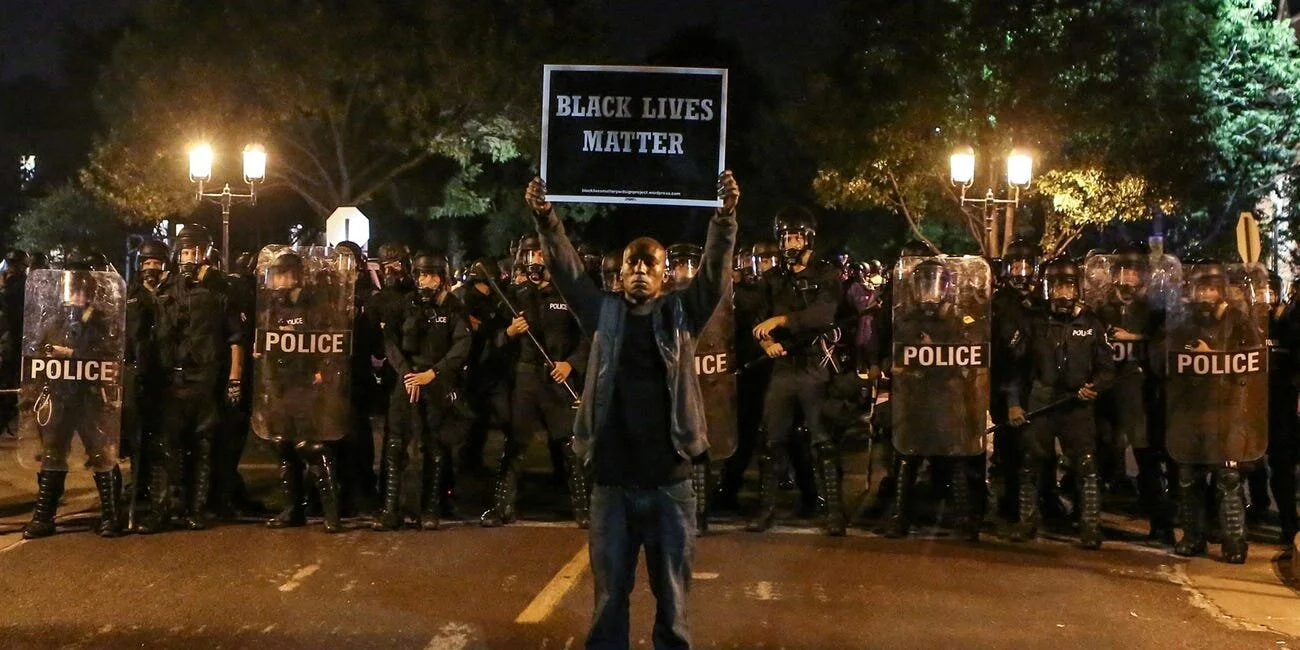N.C. Republicans efforts to prevent police budget cuts elicit resentment from local governments
Senate Bill 100 was proposed in direct response to Black Lives Matter protests which occurred in all fifty states over the summer, including North Carolina. Source: AP.
A recent bill proposed in the North Carolina Senate is meeting opposition from city officials and advocacy groups across the state.
Senate Bill 100, the “Police Funding and Protection Act,” seeks to punish local governments for attempts to defund the police. It was put forward by Republican State Senator Chuck Edwards (SD-048) on February 15. In a news conference explaining the purpose of the bill, Edwards directly referenced the nationwide Black Lives Matter protests which took place last summer. "Where the words ‘Defund the Police’ were once simply used as hateful sentiment against those who keep us a civilized society, we're now seeing them turned into action by a few local governments," he said at the bill’s announcement. He was referring to Asheville, N.C., which voted to reduce the budget of their police department by 3% in September. Asheville City Manager Deborah Campbell told the Associated Press that reducing the police budget was the first step to reallocating those funds towards alternative solutions to policing.
In enacting this change, Asheville’s government was following the recommendations of the Task Force for Racial Equity and Criminal Justice that North Carolina Governor Roy Cooper established in June. The task force presented a range of recommendations focused on limiting the crisis situations in which police would be the first responders and called for alternative responses to issues involving mental health crises and houseless persons specifically. Asheville was the only city in N.C. to enact budgetary changes in response to the Black Lives Matter protests, but the new bill would apply to all N.C. local governments. If the bill passes, any city or county that cuts more than 1% from their police budget will be penalized with reduced state funding.
The bill was also sponsored by Republican State Senators Norman Sanderson (SD-048) and Danny Britt (SD-002) and cosponsored by 16 other Republicans in the state Senate. Meanwhile, several elected Democrats have voiced discontent with the bill. Sen. Julie Mayfield (SD-049), Rep. Susan Fisher (RD-114) and Rep. John Ager (RD-115), all of whom represent Asheville and surrounding counties, are among those with complaints.
Chief among their concerns is that by passing this bill, the state senate is encroaching on the independent governing abilities of cities and counties. “[Cities and counties are] best positioned to allocate resources and deliver government services to meet the changing needs of their communities,” Sen. Mayfield said in criticism of the bill’s perceived overreach. Winston-Salem City Manager Lee Garrity agrees, and said that even though he doesn’t foresee Winston-Salem ever being affected by the bill even if it passes into law, he’s opposed to the state legislature influencing the decisions of local governments. “The council and staff take the position that Raleigh would take care of Raleigh and Winston-Salem would take care of the city," Garrity said. Garrity and Mayfield are right: If the bill passes, it will hurt the ability of local governments to oversee how their funds are used.
Several organizations throughout N.C. have also voiced their reactions to the bill. Chantal Stevens, executive director of the North Carolina ACLU, issued a statement condemning the intentions behind the bill, arguing that “[i]t is reprehensible to punish local communities for shifting resources towards deeper, more meaningful investment in communities that address the racial disparities found in policing practices.” The NC Police Benevolent Association, meanwhile, has come out in support for the bill. “This legislation is a necessary step to prevent elected officials from making harmful decisions that fail to support officers and their agencies,” Association President Randy Byrd wrote in the association’s statement.
The Police Funding and Protection Act is undoubtedly divisive — it raises important procedural questions about the independence of local governments, and moreover appears to be a direct reaction to Asheville’s good-faith attempts to follow through on official state task force recommendations. Ultimately, Senate Bill 100 reveals a state government that is deeply divided on how to address policing in North Carolina, a state with the sixth largest Black population in the nation. The repercussions of the Bill could potentially set a harmful long-term precedent for the power of local government, historically a key lever that communities can have used to meaningfully participate in democracy in N.C.

